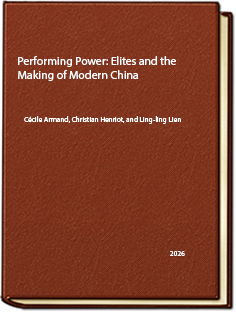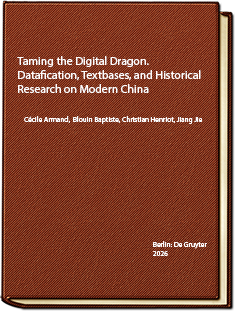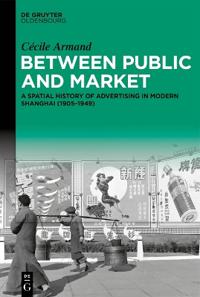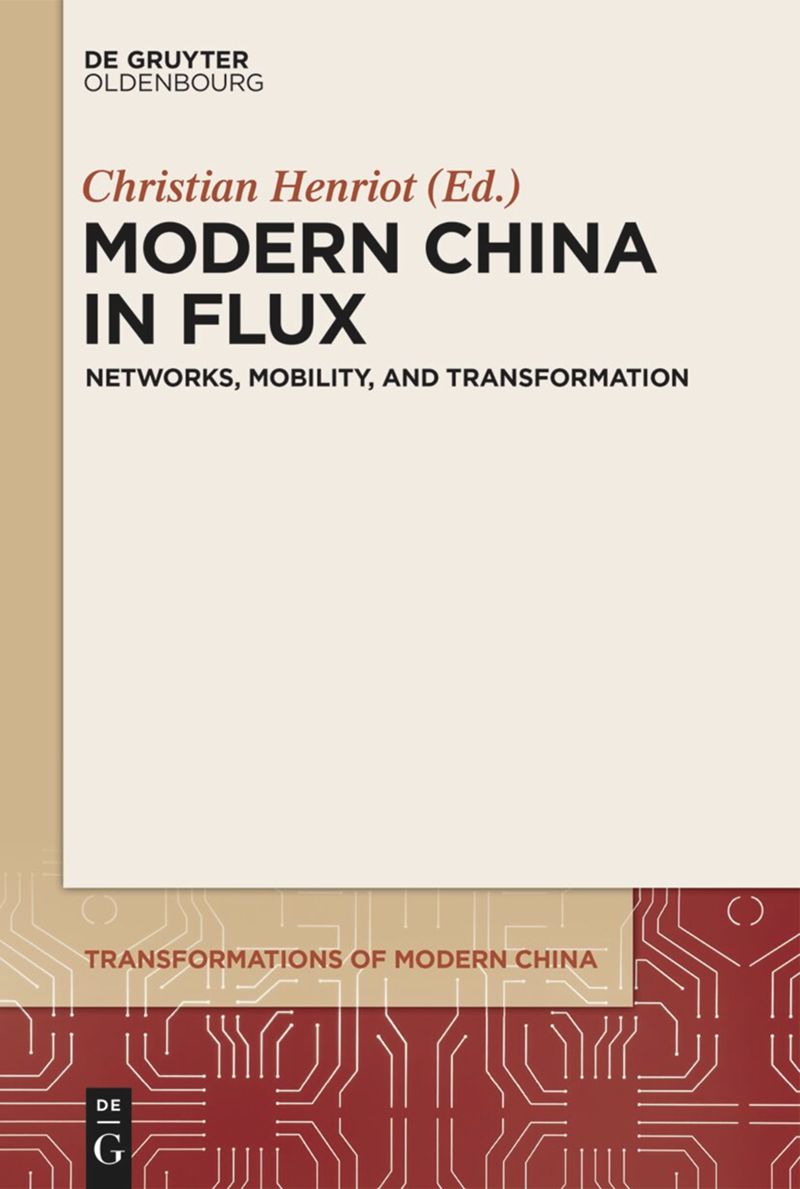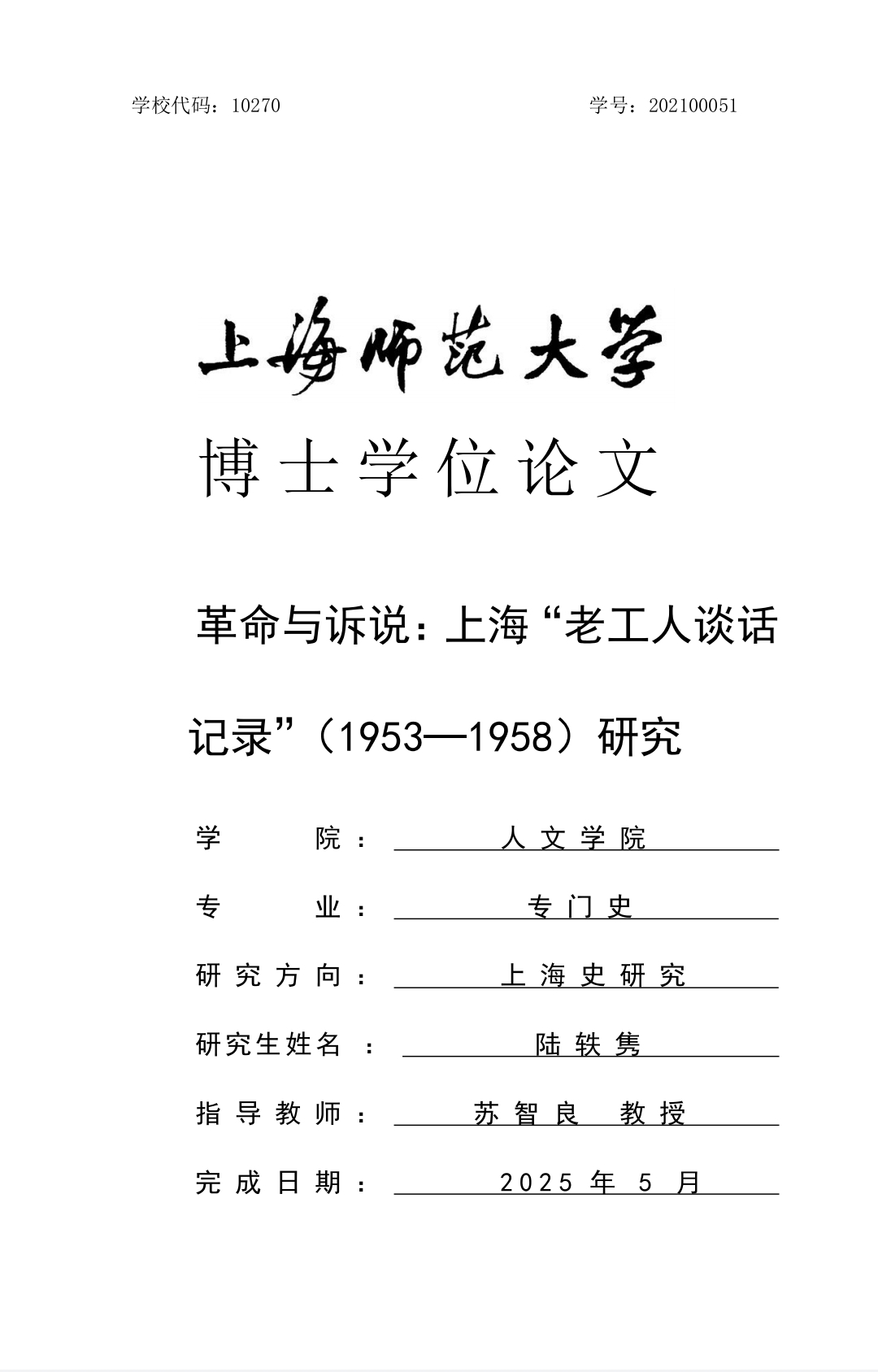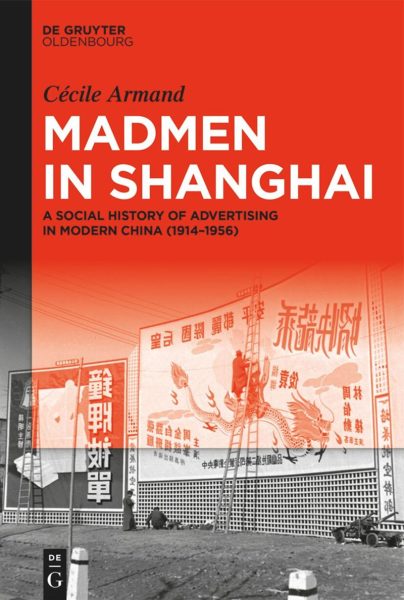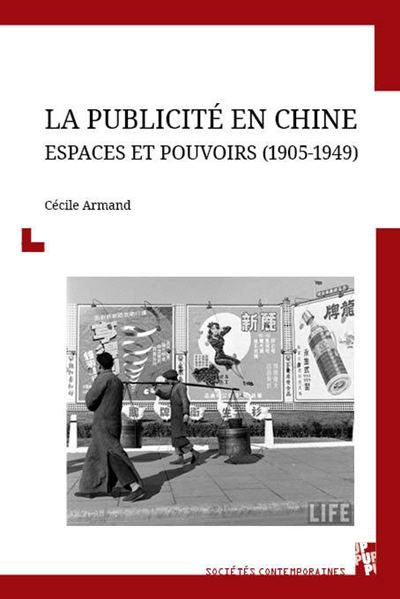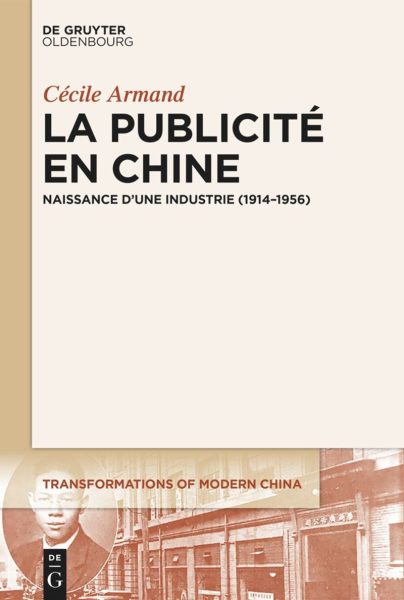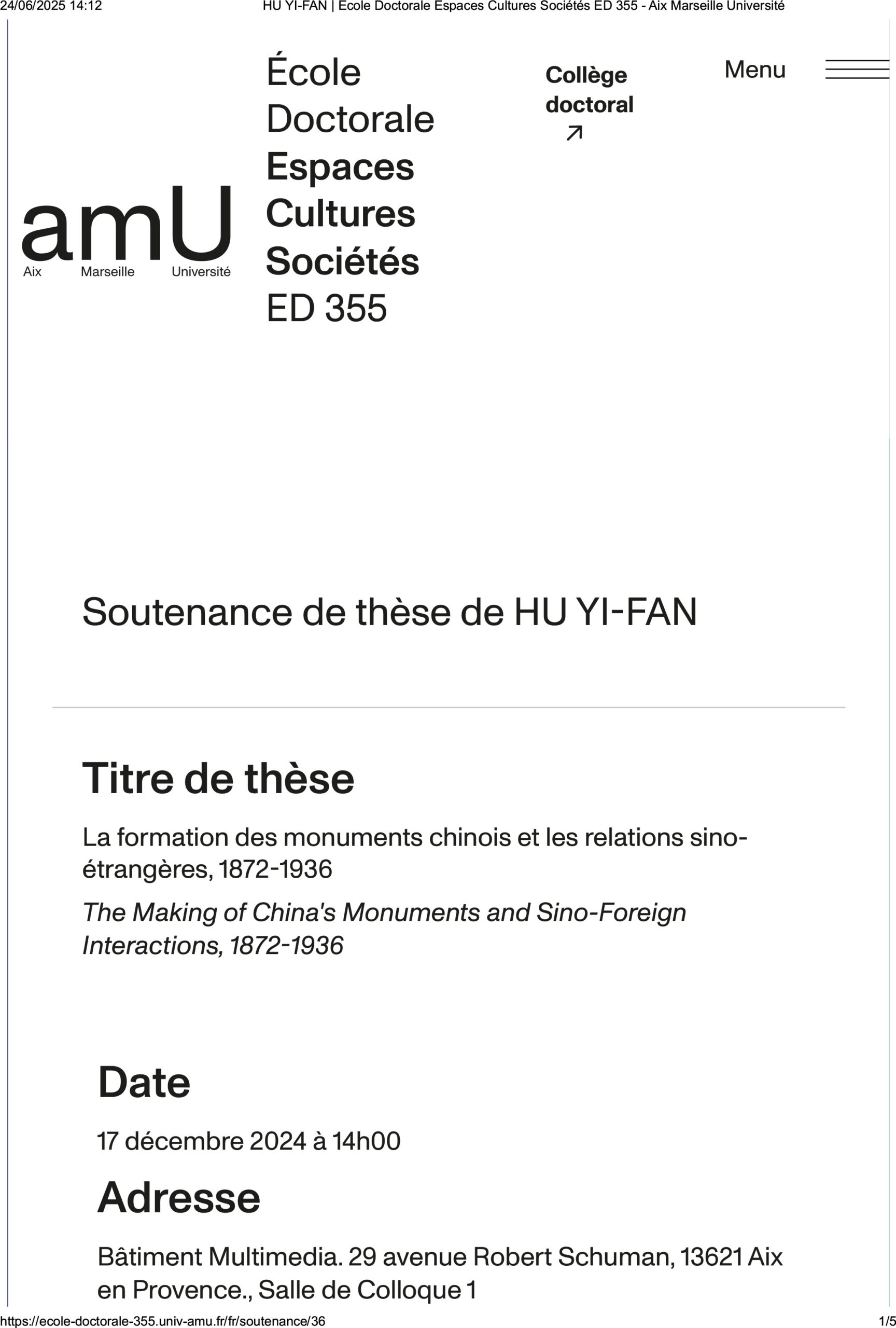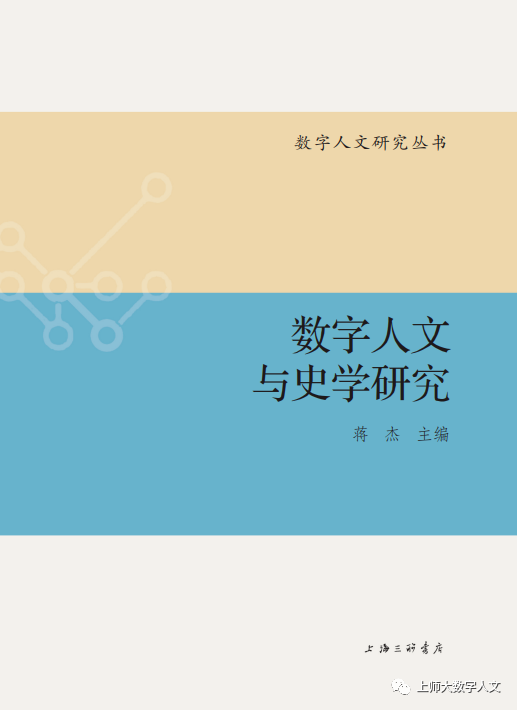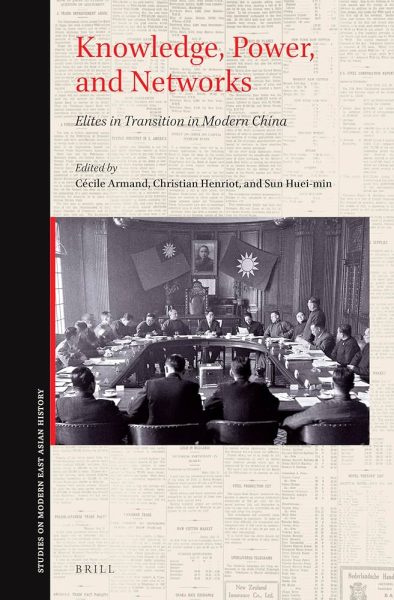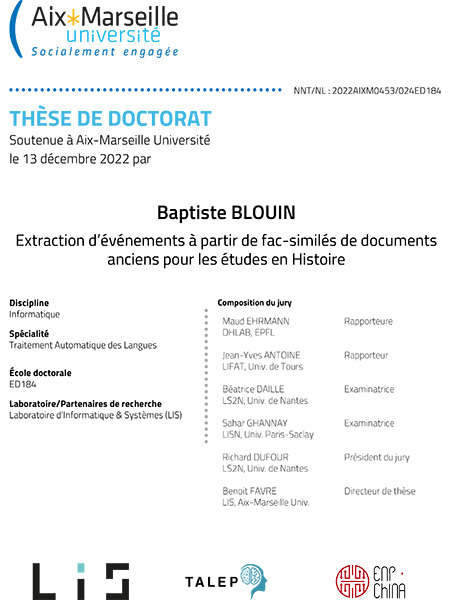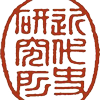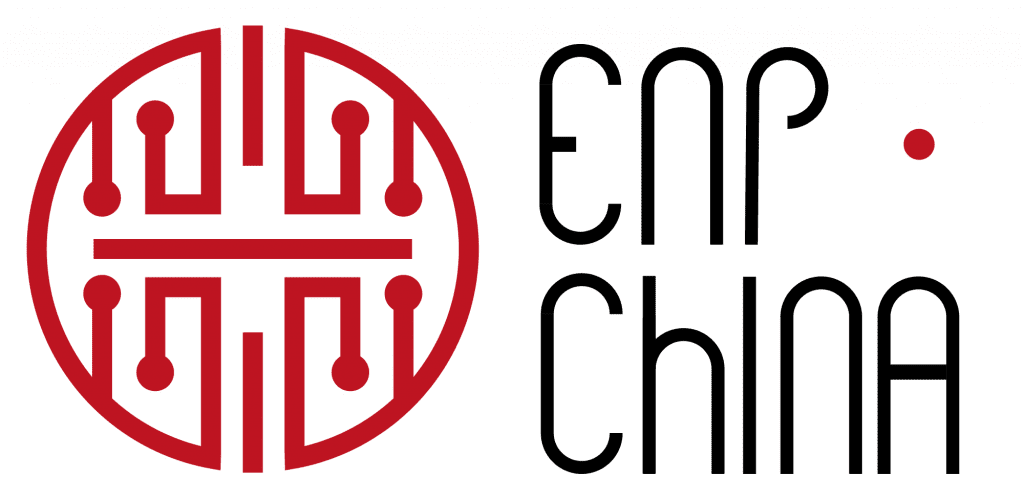BOOKS & DISSERTATIONS
JOURNAL ARTICLES & BOOK CHAPTERS
In Modern China in Flux: Networks, Mobility, and Transformation, edited by Christian Henriot, 1–23. Berlin: De Gruyter, 2025.
In Statelessness after Arendt: Refugees in Asia and the Pacific during the Global Second World War, edited by Jay Winters and Kolleen Guy. Manchester: Manchester University Press, 2025: 308-331.
Henriot, Christian. “Eminent Chinese of the Shenbao (1872-1891). A Digital Investigation of
2026, accepted
Twentieth-Century China, Special Issue, 2026 (forthcoming)
In Modern China in Flux. Networks, Mobility, and Transformation, edited by Christian Henriot, 59–98. Berlin: De Gruyter, 2025.
In Modern China in Flux: Networks, Mobility, and Transformation, edited by Christian Henriot, 313–50. Berlin: De Gruyter, 2025.
In Modern China in Flux. Networks, Mobility, and Transformation, edited by Christian Henriot, 135–62. Berlin: De Gruyter, 2024.
In Modern China in Flux: Networks, Mobility, and Transformation, edited by Christian Henriot, 241–80. Berlin: De Gruyter, 2024.
In Whom Shall I Trust: Sino-British Commercial Relationship in Early Nineteenth Century, Doctoral Dissertation. Bristol: Bristol University, 2024.
(Birds of a feather flock together: A Biographical Study of Chinese Nationalist Generals (1935-1949)).” Jindanshi yanjiu 近代史研究 Journal Modern history researches, no. (submit) (2024).
Eminent Chinese of the Shenbao (1872-1891). A Digital Investigation of News Reporting and Newspaper-Making in Late Imperial China. Journal of Digital History, 2024.
In 《冷戰下的「臺灣研究」:北美人類學家訪問紀錄》: Lengzhan xia de “Taiwan yanjiu”: Beimei renleixuejia fangwen jilu (Studying Taiwan before Taiwan Studies: American Anthropologists in Cold War Taiwan), 343–438. Taipei: Institute of Taiwan History, Academia Sinica, 2024.
In Modern China in Flux: Networks, Mobility, and Transformation, edited by Christian Henriot, 163–239. Berlin: De Gruyter, 2024
Journal of Digital History, no. Special issue DH China (2024)
Journal of Digital History, no. Special issue DH China (2024)
In Proceedings of the Joint 3rd International Conference on Natural Language Processing for Digital Humanities, edited by Mika Hämäläinen et al., 92–101. Tokyo, Japan: Association for Computational Linguistics, 2023
in Translating the Occupation: The Japanese Invasion of China, 1931–45, Edited by Jonathan Henshaw, Craig A. Smith, and Norman Smith (Vancouver: UBC Press, 2021), 170-189.” In Translating the Occupation: The Japanese Invasion of China, 1931–45. Vancouver: UBC Press, 2023, 170-189.
in Translating the Occupation: The Japanese Invasion of China, 1931–45, Edited by Jonathan Henshaw, Craig A. Smith, and Norman Smith (Vancouver: UBC Press, 2021), 170-189.” In Translating the Occupation: The Japanese Invasion of China, 1931–45. Vancouver: UBC Press, 2023, 170-189.
数字人文与史学研究 (Digital Humanities and Historical Studies). Shanghai sanlian shudian, 2023.
Journal of Data Mining & Digital Humanities 2023, no. Project presentations (November 10, 2023)
Faguo Xinjian ‘Chi Guang’ Zazhi Di 50 ,53 Ji 55 Qi Gaikuang —— Jianlun Zhubian Renyuan Gengti Yu Zazhi Liuchuan 法国新见<赤光>杂志第50、53及55期概况——兼论主编人员更替与杂志流传 (An Overview of Issues 50, 53, and 55 of ‘Red Light’ Newly Discovered in France - A Discussion on the Succession of Editors-in-Chief and the Circulation of the Magazine).” Shi Lin 史林 (Historical Circles ), no. 5 (2022): 108–16.
In Knowledge, Power, and Networks: Elites in Transition in Modern China, edited by Cécile Armand, Christian Henriot, and Huei-min Sun, 233–59. Leiden: Brill, 2022
Revue d’histoire 149, no. 1 (May 31, 2021): 75–93.
In Knowledge, Power, and Networks: Elites in Transition in Modern China, edited by Cécile Armand, Christian Henriot, and Huei-min Sun, 22–53. Leiden: Brill, 2022.
Dongya Guannianshi Jikan東亞觀念史, no. 20 (September 2022): 467–525.
In Song Meiling Yu Taiwan Gongyi Shiye 宋美齡與台灣公益事業 (Mayling Soong and Taiwan Public Welfare), 195–249. New York: Outer Sky Press, 2022.
(French Research on Modern China: A Critical Appraisal).” Shanghai Fazujie Yanjiu 上海法租界研究 4, no. 4 (2022): 169–77.
In Knowledge, Power, and Networks: Elites in Transition in Modern China, edited by Cécile Armand, Christian Henriot, and Huei-min Sun, 1–21. Leiden: Brill, 2022
In Knowledge, Power, and Networks: Elites in Transition in Modern China, edited by Cécile Armand, Christian Henriot, and Huei-min Sun, 233–59. Leiden: Brill, 2022
(Regeneration and Mobility: The Spatial Dynamics of Industries in Wartime Shanghai).” Quanqiu Chengshi Yanjiu 全球城市研究 (Global Urban Studies), no. 4 (2022): 50–68.
In Knowledge, Power, and Networks: Elites in Transition in Modern China, edited by Cecile Armand, Christian Henriot, and Huei-min Sun, 145–80. Leiden: Brill, 2021.
by Huaiyin Li. The Journal of Asian Studies, 80, No. 2 (2021): 458–460.” The Journal of Asian Studies 80, no. 2 (May 17, 2021): 458–60.
In Bianyuan Zhi Sheng: Jindai Zhongguo Zhuanji Shuxie de Xinchangshi 邊緣之聲:近代中國傳記書寫的新嘗試 (Voices from the Margins: New Approaches to Biographical Writing in Modern China), under review
In Shaping the Digital Dissertation: Topics in Knowledge Production, edited by Virginia Kuhn and Kathie Gossett, 119-128. Open Book Publishers, 2021.
Journal of Historical Network Research 5, no. 1 (September 8, 2021)
In Aesthetic Perceptions of Urban Environments, edited by Arundhati Virmani, 99–126. London: OpenBook Publishers, 2021
Journal of Military History 85, no. 1 (2021): 76–94
Journal of Historical Network Research 5, no. 1 (September 8, 2021): 114–53.
(Overview of ‘Gongren Xunkan’ Discovered in the French National Overseas Archives).” Tushuguan Zazhi 图书馆杂志 (Library Journal), no. 7 (2021).
Xingbie, Qikan Yu Shehui Wangluo: ‘Funü Qikan Zuozhe Yanjiu Pingtai’ de Jieshao Yu Yingyong 性別、期刊與社會網絡:「婦女期刊作者研究平台」的介紹與應用 (Gender, Journals, and Social Networks: Introduction and Application of‘ 'Women Periodical Author Research Platform’ Shuwei Diancang Yu Shuwei Renwen數位典藏與數位人文 (Journal of Digital Archives and Digital Humanities), no. 7 (April 2021): 37–78
(The Other’s Perspective: Recent Research and Writings in France on the History of the Sino-Japanese War).” Shanghai Shifan Daxue Xuebao 上海师范大学学报 (Journal of Shanghai Normal University), no. 4 2020
(Where Have They Gone? The Missing Persons in the January 28th Incident).” Shixue Yuekan 史学月刊 History Monthly, no. 9 (2020).
Jindai Zhongguo Funüshi Yanjiu 近代婦女史研究 (Research on Women in Modern Chinese History), no. 35 (2020): 1–65.
A Preliminary Study of Sino-Japanese War Archives Hold in Frence).” Zhonggong Dangshi Yanjiu 中共党史研究 (Journal of Chinese Communist Party History), no. 2 (2020): 153–58
Urban History, 2020, 1–19
In L’Encyclopédie Des Historiographies (Afriques, Amériques, Asies), Volume 1 : Sources et Genres Historiques, edited by Nathalie Kouamé, 1330–34. Paris: Presses de l’Inalco, 2020.
In L’Encyclopédie Des Historiographies (Afriques, Amériques, Asies), Volume 1 : Sources et Genres Historiques, edited by Nathalie Kouamé, 1150–56. Paris: Presses de l’Inalco, 2020
by Jennifer Altehenger. Pacific Affairs, 99, No. 3 (2020): 639–641.” Pacific Affairs 99, no. 3 (September 1, 2020)
In L’Encyclopédie Des Historiographies (Afriques, Amériques, Asies), Volume 1 : Sources et Genres Historiques, edited by Nathalie Kouamé, 927–31. Paris: Presses de l’Inalco, 2020. https://books.openedition.org/pressesinalco/26112.
In L’Encyclopédie Des Historiographies (Afriques, Amériques, Asies), Volume 1 : Sources et Genres Historiques, edited by Nathalie Kouamé, 673–80. Paris: Presses de l’Inalco, 2020. https://books.openedition.org/pressesinalco/24904.
Cross-Currents: East Asian History and Culture Review 9, no. 1 (May 1, 2020): 7–39.
Guanyu Funu de ‘Shishi’: Minguo Shiqi Shehui Diaocha de Xingbie Fenxi 關於婦女的「事實」:民國時期社會調查的性別分析 (‘Facts’ about Women: Gender Analysis of Social Surveys in the Republican Era).” Jindai Zhongguo Funüshi Yanjiu 近代中國婦女史研究 (Research on Women in Modern Chinese History), no. 34 (December 2019): 69–128.
In Routledge Handbook of Revolutionary China, edited by Alan Baumler, 158–72. London: Routledge, 2019.
In Proceedings of the Third Conference on Biographical Data in a Digital World 2019, CEUR., 24–30. Varna, 2019.
In The Chinese Deathscape [Digital Book-Platform]. Stanford: Stanford University Press, 2019
(War and Drugs: The Drug Trade and Consumption in Shanghai During the Second Sino-Japanese War).” Kangri Zhanzheng Yanjiu 抗日战争研究 (Journal of Sino-Japanese War Studies), no. 6 (2018): 4–21.
